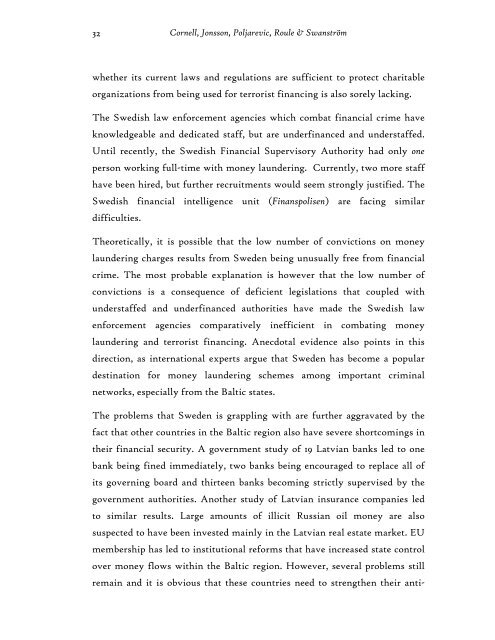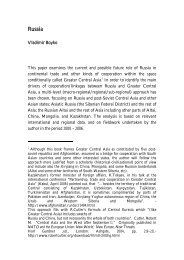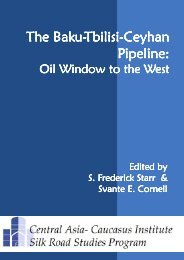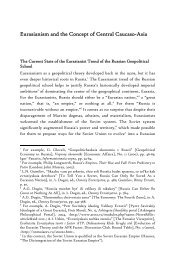Penningtvätt och Finansiell Brottslighet i Östersjöområdet
Penningtvätt och Finansiell Brottslighet i Östersjöområdet
Penningtvätt och Finansiell Brottslighet i Östersjöområdet
Create successful ePaper yourself
Turn your PDF publications into a flip-book with our unique Google optimized e-Paper software.
32<br />
Cornell, Jonsson, Poljarevic, Roule & Swanström<br />
whether its current laws and regulations are sufficient to protect charitable<br />
organizations from being used for terrorist financing is also sorely lacking.<br />
The Swedish law enforcement agencies which combat financial crime have<br />
knowledgeable and dedicated staff, but are underfinanced and understaffed.<br />
Until recently, the Swedish Financial Supervisory Authority had only one<br />
person working full-time with money laundering. Currently, two more staff<br />
have been hired, but further recruitments would seem strongly justified. The<br />
Swedish financial intelligence unit (Finanspolisen) are facing similar<br />
difficulties.<br />
Theoretically, it is possible that the low number of convictions on money<br />
laundering charges results from Sweden being unusually free from financial<br />
crime. The most probable explanation is however that the low number of<br />
convictions is a consequence of deficient legislations that coupled with<br />
understaffed and underfinanced authorities have made the Swedish law<br />
enforcement agencies comparatively inefficient in combating money<br />
laundering and terrorist financing. Anecdotal evidence also points in this<br />
direction, as international experts argue that Sweden has become a popular<br />
destination for money laundering schemes among important criminal<br />
networks, especially from the Baltic states.<br />
The problems that Sweden is grappling with are further aggravated by the<br />
fact that other countries in the Baltic region also have severe shortcomings in<br />
their financial security. A government study of 19 Latvian banks led to one<br />
bank being fined immediately, two banks being encouraged to replace all of<br />
its governing board and thirteen banks becoming strictly supervised by the<br />
government authorities. Another study of Latvian insurance companies led<br />
to similar results. Large amounts of illicit Russian oil money are also<br />
suspected to have been invested mainly in the Latvian real estate market. EU<br />
membership has led to institutional reforms that have increased state control<br />
over money flows within the Baltic region. However, several problems still<br />
remain and it is obvious that these countries need to strengthen their anti-






